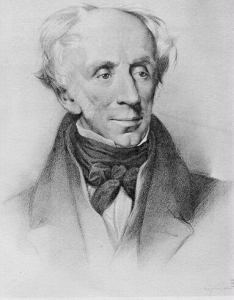“The LORD God will by no means leave the guilty unpunished, visiting the iniquity of fathers on the children and on the grandchildren to the third and fourth generations.” –Ex 34: 7
The esoteric interpretation of this verse from Exodus is that the children, grandchildren, and future generations refer to future incarnations of an individual spirit. The “father” is one’s current life. The “sins of the father” are “punished” by having to be rectified in later incarnations, meaning one has not completed their personal cycle of birth and death by way of, as Preston Harold says, obtaining “matter of his own.” This matter is spiritual matter, a “quantum of light’s radiant energy.” Before each of us can obtain “matter of our own,” we must go through the trials of life. One of the greatest trials we can go through is committing a mortal sin. But as Preston Harold asked at the end of our last installment, “what is the mortal sin?”

In the view of this study, Jesus recognized that there will be one blaspheming of life itself which a man will be unable to forgive himself – this is the mortal sin. [Jesus] did not name this sin, because unto each is his own expression of it – it might be no more than kicking his dog: the sin as such has no name. In the great majority of cases, he is unable to forgive himself, because the sin is quickly repressed and forgotten; if not, he “spends his life” in remorse and dies still unable to forgive himself what he has done. Thus, in one way or the other Homo sapiens bears this unforgiven sin into the “world to come” which develops as his ego-group develops. Because man never recovers from infant amnesia, the newly stated ego-group does not and cannot know the name and nature of the sin he bears into the world at birth – thus, the sin cannot be forgiven in this life. For this reason, each man is committed to pay the wage of this nameless sin, each pays the wage that Judas paid – in one way or another he destroys himself: “O Israel, thou hast destroyed thyself…”
So here we see that no one can define a mortal sin except for the individual who commits it. No other person or institution can tell another human being exactly what a mortal sin is. Each person harbors it themselves in their own heart and mind. We can also glimpse from Harold’s words here the impetus for the doctrine of original sin. We all bear with us into this life something that needs to be rectified from our own previous life, or “Adam.”
As one’s work in this world draws to completion, Authority-Ego places upon the Judas-factor the burden of unknown sin. Through death the unknown sin is forgiven and the Judas-factor is redeemed. But as a person dies, he takes into the world to come another nameless, unknown sin that will command the price of death which the Authority-Ego and the Judas-factor will pay to redeem this evil. Because each person comes bearing his unknown, unforgiven sin, death is already stated in his being. Will man be forever in bondage to this wheel, to a nameless sin, to death?

Only with the resurrection body does original sin end.
Scripture says: “O death I will be thy plagues; O grave I will be thy destruction.” If this scripture be true, man will not forever lay down his consciousness in the grave. This study concludes that as long as man commits sins he cannot in consciousness and good conscience forgive himself, death alone can reduce to dust his psychic “cities” of sin and his corrupted flesh. But death returns him to life to try again to learn how to live without corrupting himself and others. In each life experience, man can and does have done with error as his lust is recast into empathy. In death an iota of his evil purchases a bit of pure matter. Thus in time he will regenerate himself – will don incorruptible flesh born of incorruptible consciousness guided in life by empathy. Man will be free of the grave, but he will not be absolutely free of death – which is to say, death will be in his life as sleeping and waking is to his present consciousness, or as inhaling and exhaling is to his present body.
Until next time, peace.












